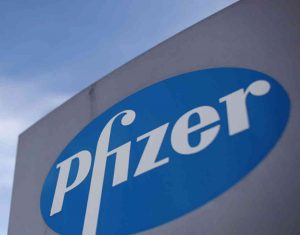 Pfizer Inc. (NYSE:PFE) has filed a lawsuit against Johnson & Johnson (NYSE:JNJ), accusing the company of anticompetitive practices. Pfizer claimed J&J was taking steps to block the sale of a drug called Inflectra, Pfizer’s version of J&J’s blockbuster drug Remicade. Remicade is an injectable biologic drug that is widely used against inflammatory disorders. The two drugs are both versions of infliximab.
Pfizer Inc. (NYSE:PFE) has filed a lawsuit against Johnson & Johnson (NYSE:JNJ), accusing the company of anticompetitive practices. Pfizer claimed J&J was taking steps to block the sale of a drug called Inflectra, Pfizer’s version of J&J’s blockbuster drug Remicade. Remicade is an injectable biologic drug that is widely used against inflammatory disorders. The two drugs are both versions of infliximab.
Remicade is made from living cells instead of chemicals and is used to treat autoimmune diseases like rheumatoid arthritis and Crohn’s disease. Since its approval in 1998, Remicade has generated $4.8 billion in sales for J&J. Inflectra was approved as a biosimilar in April 2016. Biosimilars are seen as a modern-day version of generic drugs for biologic drugs.
At its release, Pfizer priced Inflectra at 15 percent less than Remicade’s list price of $1,113 a vial. Another version of the drug, made by Samsung Bioepis, was approved in 2017 and priced at a 35 percent discount to J&J blockbuster. Those list prices do not reflect secret rebates that manufacturers provide.
Pfizer alleges that contracts between J&J and health insurers require Remicade to be used first for new patients before trying other treatments. Pfizer also said in the lawsuit that contracts with insurers did not allow them to reimburse for Inflectra, making it harder for the drug to be widely used. Because insurers won’t cover Inflectra, hospitals don’t want to keep it in stock, according to Pfizer.
Johnson & Johnson is saying the lawsuit doesn’t have merit. Scott White, president of J&J’s Janssen unit, said in an emailed statement, “We are effectively competing on value and price and to date, Pfizer has failed to demonstrate sufficient value to patients, providers, payers and employers.” J&J is currently the world’s largest pharmaceutical company.
The lawsuit could fundamentally change the way these types of drugs are marketed. If Pfizer is successful, it could discourage brand name companies from using deals with insurers to limit competition. If Pfizer loses, the case could expand the strategies used to deter competition. The case was filed in the U.S. District Court for the Eastern District of Pennsylvania.
